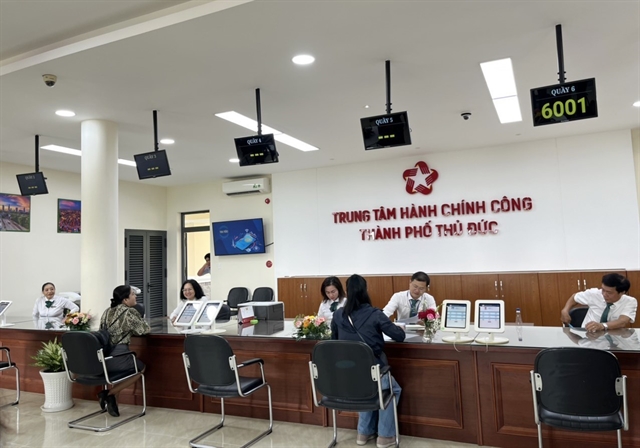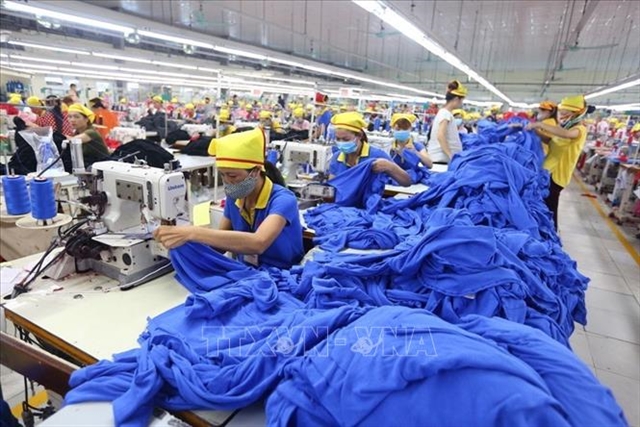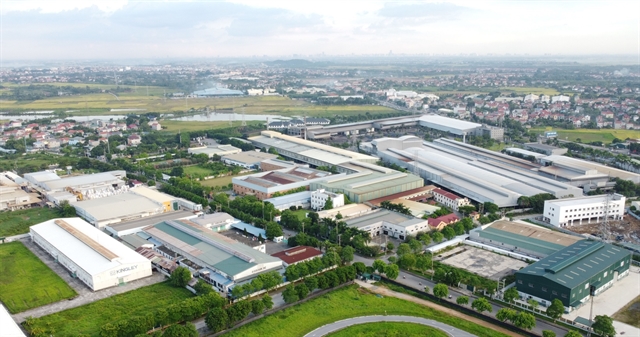 Society
Society


|
| Garment and textile enterprises have been seriously affected by the COVID-19 pandemic. — VNA/VNS Photo |
HÀ NỘI — The National Wage Council has advised the Government to keep the minimum wage unchanged until the end of 2021 instead of raising it as planned.
The council said this was due to the number of enterprises that had been heavily affected by the COVID-19 pandemic and were facing financial difficulties.
Holding the current minimum wage would create favourable conditions for enterprises to recover and ensure the livelihoods of employees, it said.
Currently, the minimum monthly wage is VNĐ4.42 million (US$191) for employees in Hà Nội and HCM City, and VNĐ3.92 million ($167) for those in major urban areas in Cần Thơ, Đà Nẵng and Hải Phòng.
In Bắc Ninh, Bắc Giang and Hải Dương provinces, the level is set at VNĐ3.43 million ($146) a month, while employees in the rest of the country receive a minimum of VNĐ3.07 million ($131).
Regional minimum wages have been applied since January 1, 2020.
Last month, the Việt Nam General Confederation of Labour proposed two options. The wage would increase by an average of 3.95 per cent from July 1, 2021 or by 2.5 per cent from January 1, 2021. The adjustment of wages will be based on the economic recovery after the COVID-19 pandemic and the global economic situation.
The Ministry of Labour, Invalids and Social Affairs reported that the COVID-19 pandemic had seriously impacted the socio-economic situation in the country in the first eight months of this year. The economy was expected to continue to suffer for the remainder of the year, with the future uncertain.
Specifically, GDP only increased by 1.81 per cent compared to the targeted 6.8 per cent in the first half of this year, and 0.36 per cent in the second quarter.
The labour market has been evaluated as unstable this year. In the first six months, about 1.2 million labourers were unemployed, of which over 451,600 were young people, accounting for 36.8 per cent of the total.
The unemployment rate has reached its highest level in five years due to declining demand. More than 11.6 per cent of enterprises were forecast to reduce their workforces in the third quarter of this year.
The National Wage Council assessed that enterprises were facing many difficulties. In particular, the export sector was the hardest hit with multiple contracts broken in the third quarter of this year. The export outlook for 2021 remains unknown.
Notably, 84.8 per cent of enterprises said they had encountered financial difficulties due to the impacts of COVID-19. Large and medium-sized firms appear the most vulnerable to the pandemic.
The majority of enterprises have been forced to implement measures such as reducing staff, rotating workers, unpaid leave or reducing wages.
The Government has been encouraged to implement measures to facilitate the economic recovery and business production, and ensure employment for workers. It has so far launched three support packages on tax exemption and reduction, credit support and social security worth VNĐ62 trillion ($2.64 billion) to help both enterprises and labourers to overcome difficulties caused by the pandemic.
As a result the National Wage Council recommended the minimum wage should remain unchanged. Labourers, enterprises and the State should work together to ensure livelihoods and create favourable conditions for businesses to overcome these difficulties towards an economic recovery. — VNS




